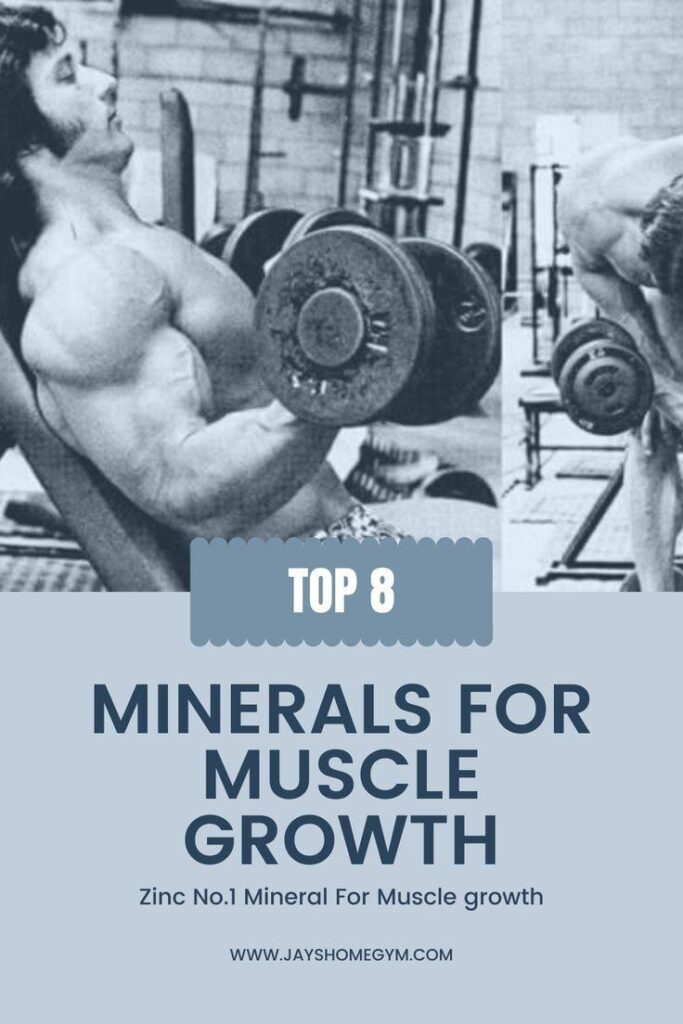When it comes to building muscle and speeding up recovery, many factors come into play—nutrition, exercise routines, rest, and more. Among these, micronutrients like zinc often fly under the radar.Despite being required only in small amounts, zinc plays a crucial role in muscle growth and repair, influencing everything from protein synthesis to immune function. In this article, we’ll explore how zinc impacts muscle development and recovery, unpacking the science behind this essential mineral and what it means for anyone looking to optimize their fitness journey.
Table of Contents
- Zinc and Muscle Protein Synthesis Understanding the biological Connection
- How Zinc Influences Muscle Recovery and Reduces Inflammation
- Dietary Sources and Supplementation Strategies for Optimal Zinc Levels
- Practical Tips to Balance Zinc Intake for Enhanced Muscle Growth and Repair
- Closing Remarks
Zinc and Muscle Protein Synthesis Understanding the Biological Connection
Zinc plays a fundamental role in the complex process of muscle protein synthesis,which is essential for muscle growth and repair. This vital mineral acts as a cofactor for numerous enzymes that regulate cellular functions, including the synthesis of new muscle fibers. Without adequate zinc levels,these enzymatic activities slow down,impairing the body’s ability to efficiently build and repair muscle tissue after exercise. Additionally, zinc influences the production of key hormones such as insulin-like growth factor 1 (IGF-1) and testosterone, both of which are critical drivers of muscle development.
Maintaining optimal zinc levels supports muscle recovery through several biological mechanisms:
- Enhancing protein assembly: Zinc facilitates the activation of ribosomes, which are responsible for assembling amino acids into muscle proteins.
- Reducing muscle inflammation: By modulating the immune response, zinc helps minimize inflammation that can delay muscle repair.
- Supporting cellular energy metabolism: Zinc contributes to mitochondrial health, ensuring muscles receive the energy needed for synthesis and recovery.
Incorporating zinc-rich foods or supplements as part of a balanced diet can therefore be a strategic step toward optimizing muscle growth and accelerating recovery times.
How Zinc Influences Muscle Recovery and Reduces inflammation
Zinc plays a crucial role in muscle recovery by supporting the repair and growth of muscle tissues after intense physical activity.This essential mineral aids in the synthesis of proteins, which are the building blocks necessary for muscle regeneration. Moreover, zinc helps regulate hormone levels such as testosterone and growth hormone, both of which are vital for muscle development and recovery. Without adequate zinc, muscles can take longer to heal, leading to prolonged soreness and a higher risk of injury.
Beyond its muscle-rebuilding properties, zinc is also a potent anti-inflammatory agent. It helps modulate the body’s immune responses, ensuring inflammation is kept in check following exercise-induced muscle damage. Chronic inflammation can impair recovery and limit muscle gains, so zinc’s ability to reduce oxidative stress and inflammatory markers accelerates healing. Key benefits include:
- Reduction of muscle soreness and swelling after workouts
- enhanced immune function, preventing prolonged recovery periods
- Improved antioxidant defence against exercise-induced oxidative damage
Dietary Sources and Supplementation Strategies for Optimal Zinc Levels
To maintain optimal zinc levels essential for muscle growth and recovery, incorporating a variety of zinc-rich foods is key. Natural dietary sources include red meat, shellfish such as oysters, and poultry. Vegetarians and vegans can benefit from plant-based options like pumpkin seeds,
When dietary intake falls short, supplementation strategies can effectively bridge the gap. Zinc supplements often come in forms such as zinc gluconate, zinc citrate, and zinc sulfate, each with varying bioavailability.it’s crucial to follow recommended dosages and avoid excessive intake, as high levels can interfere with other mineral balances. For targeted muscle recovery, timing supplements around workouts may optimize absorption and utilization.Consulting with a healthcare professional ensures an approach that suits individual physiological needs and fitness goals.
practical Tips to Balance Zinc Intake for Enhanced Muscle Growth and Repair
Maintaining an optimal zinc intake is essential for muscle growth, as this trace mineral plays a pivotal role in protein synthesis and tissue repair. To ensure you’re reaping the maximum benefits,focus on incorporating zinc-rich foods like lean meats,shellfish,seeds,and legumes into your daily meals. Additionally, balancing zinc with other minerals—especially copper—is crucial because excessive zinc can interfere with the absorption of complementary nutrients, possibly stalling recovery processes. Consider diversifying your diet rather than relying solely on supplements to avoid imbalances and take advantage of the synergistic effects of whole foods.
Timing and moderation are equally important. Spreading your zinc intake throughout the day can help maintain stable blood levels, supporting continuous muscle repair. If you opt for supplementation, opt for low to moderate doses, ideally under the guidance of a healthcare professional, to prevent potential side effects such as nausea or impaired immune response. keep an eye on lifestyle factors like hydration and sleep, as these amplify zinc’s impact on muscle regeneration—as optimizing recovery is about harmonizing nutrient intake with overall wellness habits.
- Incorporate natural zinc sources: pumpkin seeds, beef, lentils.
- Balance minerals: pair zinc with foods rich in copper and magnesium.
- Consider timing: divide zinc intake between meals.
- Monitor supplementation: avoid megadosing supplements.
- Support with lifestyle: prioritize hydration and quality sleep.
Closing Remarks
zinc plays a vital role in supporting muscle growth and recovery by contributing to protein synthesis,hormone regulation,and immune function. While it’s not a magic bullet, ensuring adequate zinc intake—whether through diet or supplements—can help optimize your fitness progress and overall health. As always, balance is key, so consider including zinc-rich foods like lean meats, nuts, and legumes in your meals, and consult with a healthcare professional before making significant changes to your supplement routine. Staying informed and mindful about your nutrient intake is a simple but effective step toward achieving your muscle-building and recovery goals.

